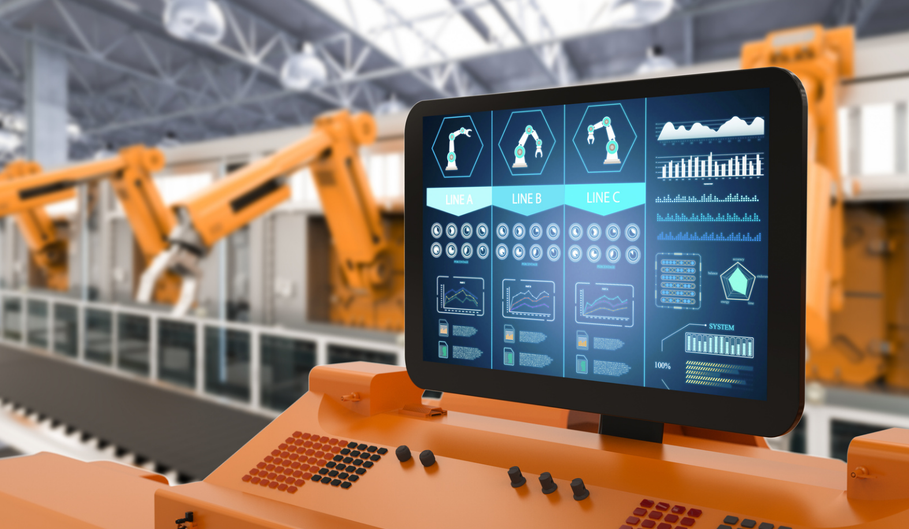Reflecting on my early years, I recall my father’s tales from his teens in a young nation. He spent a few of his formative years working in a factory, filling matchboxes. The number of matchboxes he filled each day influenced his pocket money. This necessity to maximize output for his income provided my initial insight into industrial operations, an experience from over three decades ago.
Looking back at his personal motivation, it is not so much de-linked from any industry really. Producing more output, while reducing the resources you input, is perhaps the most common challenge every industry and business faces, and every leader is challenged with. It is a complex symphony of efficiency and productivity that lies at the heart of industrial success.
Reflecting on the transformation of industries over the years, I have identified five key elements that have fundamentally reshaped their operational landscape. And these continue to create global impact on industrial development trends today.
- Trained staff: Access to educational opportunities has cultivated a workforce and management team that is not only highly skilled but also actively advocates for the integration of automation in various functions. [1] [2]
- Glocalization: The evolving trade frameworks and financial regulations have unlocked doors to international trade, enabling industries to operate on a global stage. [1] [2]
- Competition: Glocalization has fostered competition on a global scale that sparks a wave of innovation in both products and services. [1] [2]
- Scale: Efficiency in global supply chains has facilitated the emergence of large-scale production hubs, strategically located near key resources. [1] [2]
- Technology: Underpinning all these developments is the relentless advancements in technology, which has significantly accelerated research, development, and its application within the industrial sector. [1] [2] [3]
In today’s world, an industry relies on technology to scale every aspect of its business. And perhaps the deepest impact we will see in the coming years is how technology replaces humans on the factory floor and accelerates industrial output at a pace we have only seen in described in fiction.
Human capital will be greatly impacted, and many will interface with the factory floor via digital workspaces or digital twins instead. Consequently, human capital will be free for more complex problem-solving activities, thereby enhancing both safety and efficiency. Floor production, which is heavily automated today already in large scale units, will see another wave of innovation with sensors, AI-on the edge, new interfaces between machine-to-machine and human-to-machine.
The true impact within industry is nothing short of a science fiction movie. The impact on the world, however, is the key driver and beneficiary of this change.
Increased efficiency, reduced emissions, sustainable production, and a resilient industry will positively help the world with its most pressing challenges.

In my view, technology’s influence on industry will particularly impact in these four key areas:
- Net Zero: Energy consumption patterns will be highly efficient, resource utilization will reach its peak, and emissions will be reduced.
Example: Industrial software within energy management for optimized energy sourcing, balancing, and forecasting will help Net Zero ambitions. - Efficient: Output can exponentially increase with limited resources functioning 24/7.
Example: Industrial software-driven automation allowing for uninterrupted production cycles, optimal use of materials, streamlined processes, and reduced manual interventions will lead to higher efficiency. - Sustainable: Waste will be minimized, and circularity of products within new product development will reach new levels of automation with sensors, and robotics.
Example: Precision operations software minimizes waste, aids towards design and implementation of circular economy models, tracks, manages and effectively extends product lifecycles, promoting sustainable practices from sourcing to disposal. - Resilient: Industries can operate with minimal downtimes, benefiting from predictive maintenance, advanced analytics, and demand forecasts.
Example: Using AI and machine learning, predictive maintenance software anticipates equipment failures before they occur, analyzing various data points to identify potential disruptions, allow industries to adapt proactively, and by identifying market demand, ensures supply chain resilience, helping industries adjust production and inventory in near real-time.
Accelerating industrial output is a cornerstone for economic growth and global competitiveness. As I reflect on the journey from the simple manual labor of my father's era to the high-tech industrial landscape of today, it becomes increasingly clear how profoundly technology has redefined industrial output. The evolution from filling matchboxes to harnessing the power of digital twins and AI demonstrates a remarkable leap, not just in efficiency and scale, but in our aspirations and capabilities as well.
RunwayFBU: Supporting founders solving important global challenges
In the Nordics, at the heart of this industrial transformation, we at RunwayFBU are witnessing a change and actively participating in shaping it. As industries continue to evolve, driven by relentless technological advancements, we stand at a pivotal moment. A moment where the decisions we make and the innovations we foster will determine not just our economic prosperity, but the sustainability and resilience of our global community.
At RunwayFBU, we support entrepreneurs building global companies solving important challenges by using data and technology. Our approach is founder-friendly and builds on the strengths of the Aker ecosystem. We enable founders to access the competence, expertise and network found across the different Aker companies and our wider corporate network.
With Aker's extensive international reach, RunwayFBU is a unique resource for companies aiming accelerate industrial output. Please connect with us and let's discuss how we can propel your venture forward!
- Muybridge: Innovates in imaging technology, reinventing camera tech as a platform, and holds potential for various industrial applications.
- PLAATO: Transforms the brewing industry's productivity and profitability through real-time updates at every step of the fermentation process.



